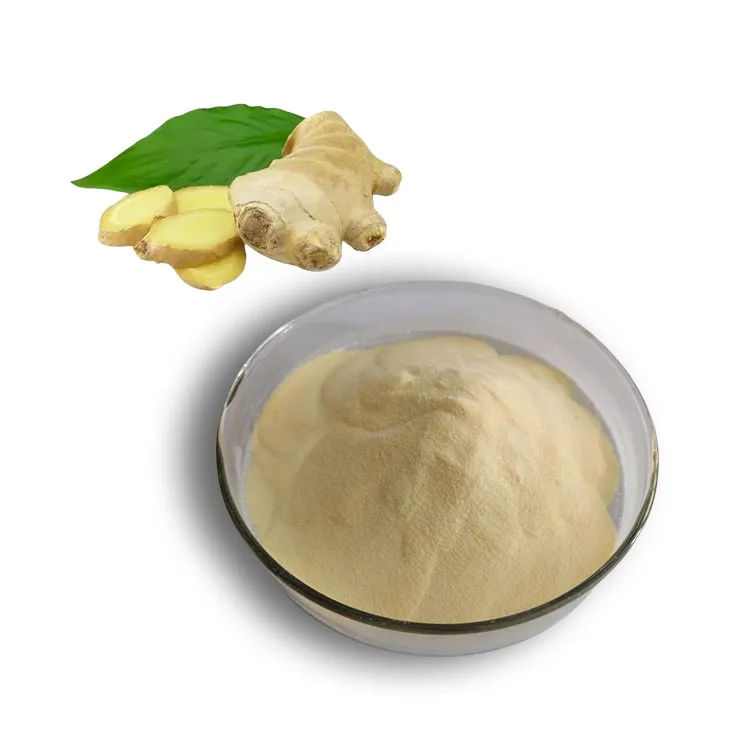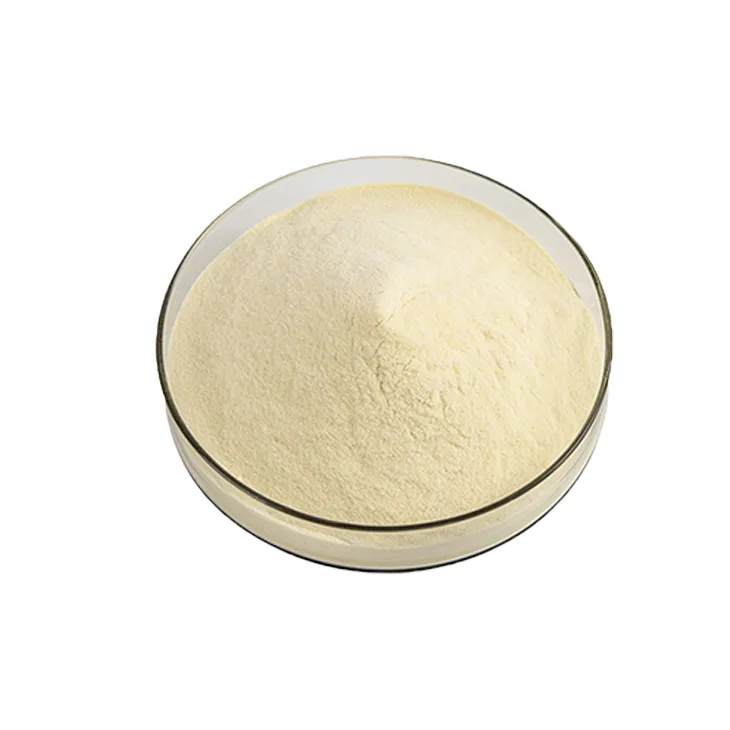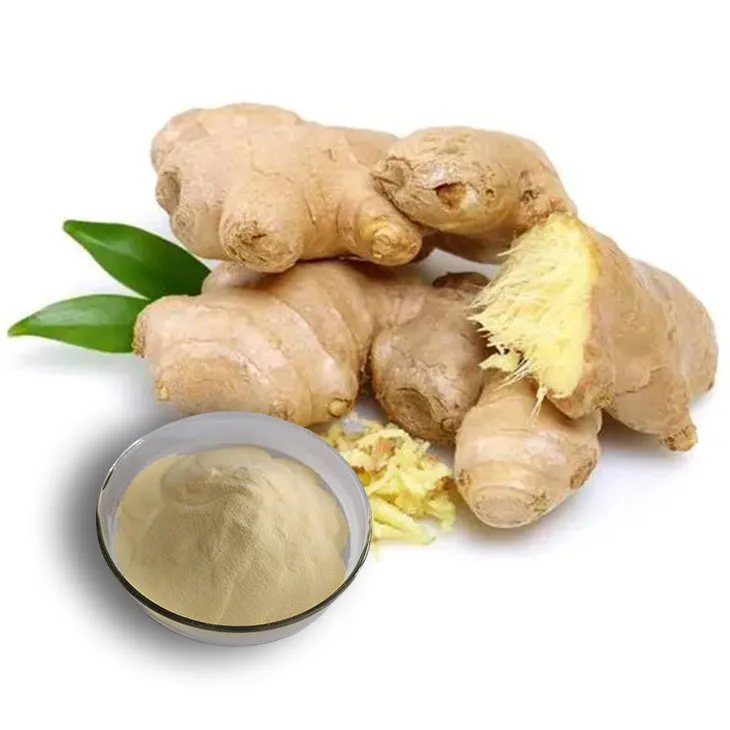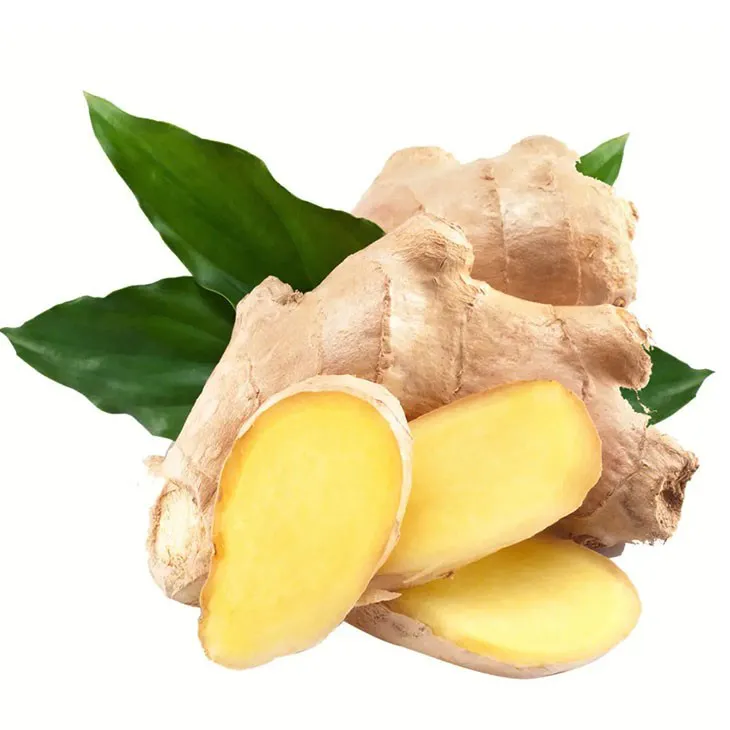- 0086-571-85302990
- sales@greenskybio.com
Understanding Private Labels of Ginger Extract: A Comprehensive Guide
2024-12-09

1. Introduction
Ginger Extract has gained significant popularity in recent years due to its numerous health benefits. It is widely used in the food, beverage, and supplement industries. Private labels play a crucial role in the marketing and distribution of Ginger Extract products. A private label is a product that is manufactured by one company and sold under another company's brand name. In the case of Ginger Extract, private labels offer a cost - effective way for companies to enter the market and provide consumers with a variety of options.

2. Regulatory Compliance
2.1 Food Safety Regulations
When it comes to ginger extract private labels, ensuring compliance with food safety regulations is of utmost importance. Regulatory bodies such as the Food and Drug Administration (FDA) in the United States and the European Food Safety Authority (EFSA) in Europe have strict guidelines regarding the production, labeling, and distribution of food products containing ginger extract. For example, manufacturers must ensure that the ginger used in the extract is sourced from safe and reliable suppliers. They also need to follow proper manufacturing processes to prevent contamination and ensure the purity and potency of the extract.
2.2 Labeling Requirements
Labeling is a critical aspect of regulatory compliance for ginger extract private labels. The label must contain accurate information about the product, including the name of the product, the amount of ginger extract per serving, the list of ingredients, and any potential allergens. In addition, if the product makes any health claims, such as "boosts immunity" or "relieves nausea," these claims must be supported by scientific evidence and comply with regulatory guidelines. For example, in the United States, health claims on food products are regulated by the FDA, and companies must follow specific rules to make such claims.
3. Quality Control
3.1 Raw Material Selection
The quality of ginger extract starts with the selection of raw materials. High - quality ginger should be chosen for extraction. This means selecting ginger that is fresh, free from pests and diseases, and grown in suitable environmental conditions. For private label products, it is essential to work with reliable suppliers who can consistently provide high - quality ginger. Some factors to consider when selecting ginger suppliers include their farming practices, quality control measures, and reputation in the industry.
3.2 Extraction Process
The extraction process also plays a vital role in determining the quality of ginger extract. There are different extraction methods, such as solvent extraction and supercritical fluid extraction. Each method has its own advantages and disadvantages. Solvent extraction is a commonly used method, but it may leave behind some solvent residues if not properly controlled. Supercritical fluid extraction, on the other hand, is a more advanced method that can produce a purer extract with fewer residues. Private label manufacturers need to choose the appropriate extraction method based on their product requirements and quality standards.
3.3 Testing and Analysis
To ensure the quality of ginger extract, regular testing and analysis are necessary. Tests can include assays for the active compounds in ginger, such as gingerols and shogaols. These compounds are responsible for many of the health benefits associated with ginger. In addition, tests for purity, potency, and safety should be conducted. For example, heavy metal testing is important to ensure that the extract does not contain harmful levels of metals such as lead or mercury. Quality control laboratories can perform these tests using advanced analytical techniques such as high - performance liquid chromatography (HPLC) and gas chromatography - mass spectrometry (GC - MS).
4. Product Differentiation
4.1 Ingredient Blends
One way to differentiate ginger extract private label products is through ingredient blends. Manufacturers can combine ginger extract with other complementary ingredients to create unique product formulations. For example, ginger extract can be blended with turmeric for an anti - inflammatory product, or with honey for a soothing throat remedy. These ingredient blends can target specific consumer needs and preferences, making the product more appealing in the market.
4.2 Packaging Design
Packaging design is another important aspect of product differentiation. The packaging of ginger extract private label products should be both functional and attractive. It should protect the product from light, moisture, and air to maintain its quality. At the same time, the packaging design can be used to convey the brand image and product benefits. For example, a sleek and modern packaging design may appeal to a younger, health - conscious consumer group, while a more traditional design may be suitable for a product targeting an older demographic.
4.3 Product Formats
Ginger extract private label products can come in different product formats, which can also be a means of differentiation. Common product formats include capsules, tablets, liquid extracts, and powders. Each format has its own advantages and is suitable for different consumption methods. For example, capsules and tablets are convenient for on - the - go consumption, while liquid extracts can be easily added to beverages. Manufacturers can choose the product format based on the target market and consumer usage habits.
5. Consumer Appeal
5.1 Health Benefits
The health benefits of ginger extract are a major factor in its consumer appeal. Ginger has been known for its anti - nausea, anti - inflammatory, and antioxidant properties. Consumers who are looking for natural remedies for these health issues are likely to be interested in ginger extract products. Private label manufacturers can emphasize these health benefits in their marketing and product descriptions to attract consumers. For example, a private label ginger extract supplement can be marketed as a natural way to relieve morning sickness or joint pain.
5.2 Taste and Flavor
Taste and flavor also play a role in consumer appeal. Ginger has a distinct, spicy flavor that some consumers love, while others may find it too strong. Private label manufacturers can address this by offering products with different levels of ginger flavor. For example, a ginger extract beverage can be available in a mild - flavored version for those who prefer a less intense taste, and a more strongly flavored version for ginger enthusiasts. Additionally, manufacturers can explore ways to blend ginger with other flavors to create more appealing taste profiles, such as ginger - lemon or ginger - mint.
5.3 Brand Image and Reputation
The brand image and reputation of a private label ginger extract product can significantly influence consumer appeal. Consumers are more likely to trust and choose a product from a brand that has a good reputation for quality and reliability. Private label companies can build their brand image through consistent product quality, ethical business practices, and effective marketing. For example, a private label brand that is known for its commitment to using only organic ginger and sustainable manufacturing processes may attract consumers who are environmentally and health - conscious.6. Marketing and Promotion
6.1 Online Marketing
In today's digital age, online marketing is essential for promoting ginger extract private label products. Social media platforms, such as Facebook, Instagram, and Pinterest, can be used to reach a wide audience. Companies can create engaging content, such as blog posts, videos, and infographics, to educate consumers about the benefits of ginger extract and their products. E - commerce platforms also provide an opportunity for private label companies to sell their products directly to consumers. For example, Amazon offers a platform for private label brands to showcase their ginger extract products and reach a global customer base.
6.2 Influencer Marketing
Influencer marketing can be an effective strategy for promoting ginger extract private label products. Influencers, such as health bloggers, fitness trainers, and nutritionists, have a large following and can influence consumer purchasing decisions. Private label companies can collaborate with influencers to promote their products. For example, an influencer can create a sponsored post or video about a private label ginger extract supplement, sharing their personal experience with the product and recommending it to their followers.
6.3 Traditional Marketing
Traditional marketing methods still have their place in promoting ginger extract private label products. This includes advertising in print media, such as magazines and newspapers, as well as radio and television commercials. Trade shows and exhibitions are also important platforms for promoting private label products. At these events, companies can showcase their products, network with potential customers and partners, and gain exposure in the industry. For example, a private label ginger extract manufacturer can participate in a natural products trade show to introduce their new product line to retailers and distributors.7. Pricing Strategies
7.1 Cost - Based Pricing
Cost - based pricing is one of the most common pricing strategies for ginger extract private label products. This involves calculating the total cost of production, including raw materials, manufacturing, packaging, and marketing, and adding a markup to determine the selling price. For example, if the cost of producing a bottle of ginger extract is $5 and the company wants a 50% markup, the selling price would be $7.50. Cost - based pricing ensures that the company covers its costs and makes a profit.
7.2 Value - Based Pricing
Value - based pricing focuses on the perceived value of the product by the consumer. Instead of basing the price solely on cost, companies consider the benefits that the product offers to the consumer. For ginger extract products, if consumers perceive that the product has high - value health benefits, they may be willing to pay a higher price. For example, a premium - quality ginger extract supplement with added ingredients for enhanced health benefits may be priced higher than a basic ginger extract product.
7.3 Competitive Pricing
Competitive pricing involves setting the price of the product based on the prices of competing products in the market. Private label companies need to research the prices of other ginger extract products and position their products competitively. If their product offers similar features and quality as a leading brand but at a lower price, it may attract price - sensitive consumers. However, companies also need to ensure that they can maintain their profit margins while offering competitive prices.8. Conclusion
Understanding private labels of ginger extract is a complex but rewarding endeavor. From regulatory compliance to consumer appeal, there are many factors to consider when developing and marketing a private label ginger extract product. By focusing on quality control, product differentiation, marketing, and pricing strategies, private label companies can successfully enter the market and meet the diverse needs of consumers. With the growing demand for natural and healthy products, ginger extract private labels have the potential for significant growth in the future.
FAQ:
What is a private label of ginger extract?
A private label of ginger extract refers to a product brand that is created and owned by a retailer, distributor, or a private company rather than the manufacturer. It allows the entity to market the ginger extract under their own name, often with custom packaging, branding, and marketing strategies.
Why is regulatory compliance important for ginger extract private labels?
Regulatory compliance is crucial for ginger extract private labels. It ensures that the product meets safety, quality, and labeling requirements set by relevant authorities. Non - compliance can lead to legal issues, recalls, and damage to the brand's reputation. It also helps protect consumers from potential harm and ensures fair trade in the market.
How can ginger extract private labels enhance consumer appeal?
To enhance consumer appeal, ginger extract private labels can focus on several aspects. Firstly, they can emphasize the quality and purity of the extract. High - quality packaging that is both attractive and functional can also draw consumers. Offering unique product features, such as specific extraction methods or additional health benefits, can set the private label apart. Additionally, effective marketing that targets the right consumer demographics and communicates the product's value clearly can boost its appeal.
What are the common challenges faced by ginger extract private labels?
Some common challenges include intense competition from established brands, ensuring consistent quality of the ginger extract, dealing with fluctuating raw material prices, and meeting regulatory changes. There may also be challenges in building brand awareness and loyalty in a crowded market, as well as differentiating the product from competitors.
How are ginger extract private labels different from branded products?
Branded products are typically produced and marketed by the manufacturer under their own well - known brand name. Ginger extract private labels, on the other hand, are owned by a third - party entity. Private labels often have more flexibility in terms of pricing, packaging, and marketing strategies. They can also target niche markets more easily, while branded products usually have a broader market presence and a more established reputation.
Related literature
- The Role of Ginger Extract in Health and Wellness"
- "Ginger Extract: Production, Quality Control, and Market Trends"
- "Private Label Brands: Strategies for Success in the Nutraceutical Industry"
- ▶ Hesperidin
- ▶ Citrus Bioflavonoids
- ▶ Plant Extract
- ▶ lycopene
- ▶ Diosmin
- ▶ Grape seed extract
- ▶ Sea buckthorn Juice Powder
- ▶ Fruit Juice Powder
- ▶ Hops Extract
- ▶ Artichoke Extract
- ▶ Mushroom extract
- ▶ Astaxanthin
- ▶ Green Tea Extract
- ▶ Curcumin
- ▶ Horse Chestnut Extract
- ▶ Other Product
- ▶ Boswellia Serrata Extract
- ▶ Resveratrol
- ▶ Marigold Extract
- ▶ Grape Leaf Extract
- ▶ New Product
- ▶ Aminolevulinic acid
- ▶ Cranberry Extract
- ▶ Red Yeast Rice
- ▶ Red Wine Extract
-
Nettle leaf extract
2024-12-09
-
Honeysuckle Pollen
2024-12-09
-
Shikone Extract
2024-12-09
-
Milk Thistle Extract
2024-12-09
-
Hops Extract
2024-12-09
-
Acai Berry Extract
2024-12-09
-
Yellow Pine Extract
2024-12-09
-
Soy Extract
2024-12-09
-
Alfalfa Meal
2024-12-09
-
Phyllanthus Emblica Extract
2024-12-09





















